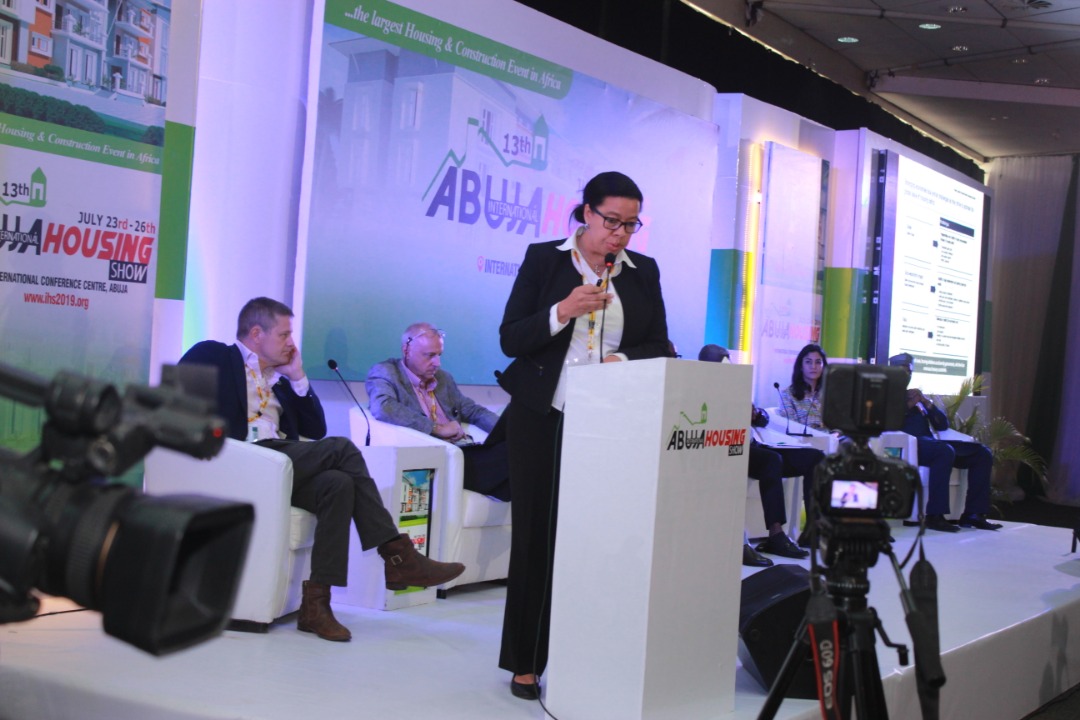Speaking at the 13th Abuja International Housing Show that held from 23rd to 26th July 2019, Sade Hughes of Mixta Africa said that while access to housing is an unprecedented global challenge growing fast with rapid urbanisation, the housing problem is more pronounced in emerging markets across Africa, Asia and Latin America.
According to her, the biggest challenges faced by emerging markets like that of Nigeria are fragmentation and inability to meet unprecedented volumes of housing deficit; Inability to align stakeholders and catalyse grassroots impact; challenges in making the economics work, and in a number of cases, housing initiatives are driven by governments who face enormous treasury challenges.

Foreign Direct investments, as important as they are, she said, are attracted more by regions where domestic capital is already being applied to unbridle the potential in these economies.
“In addition to strong economic fundamentals, local capital is required to de-risk opportunities and prove their viability to international investors
“The application of local capital ahead of FDI plays an important role for the sustained growth of local enterprise in an economy,” she said.
According to her, transforming the huge need into bankable opportunity will require public and private sector involvement
“FDI has to be deployed in key areas of the value chain to have the most impact in order to stimulate home production and ownership.
“Foreign capital when applied appropriately can improve an economy’s capacity to create affordable mortgages.
“The creation of mortgages has a huge multiplier effect in stimulating the production of lower middle income and affordable housing because it gives investors a clear exit path.

“Foreign capital is better attracted to opportunities where local capital (public or private sector) has been used to de-risk them.
“Macro economic policy that support liberalisation play an important role in attracting foreign capital inflows,” she said.
By Ojonugwa Felix Ugboja





